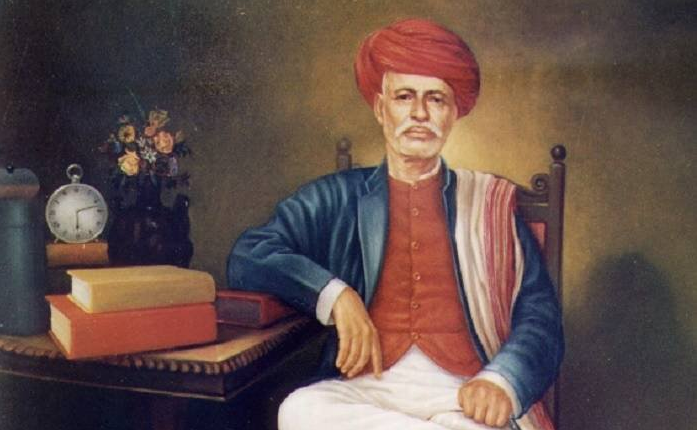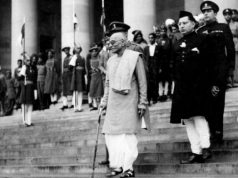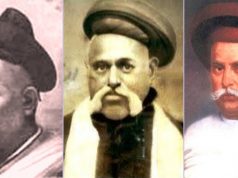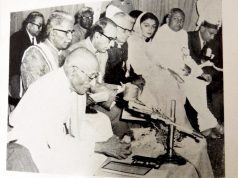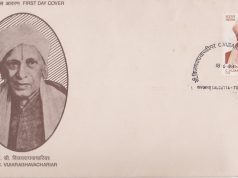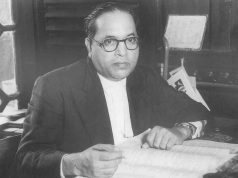Brought by the modernising force of British Raj, the cosmopolitan ferment of Pune in the late 18th century fostered a small Indian intelligentsia which had an immense influence on the shaping of modern India. Ramchandra Guha has pointed out that “between 1875 and 1910, the city of Poona (now Pune) was in the vanguard of social reform.” The likes of Gokhale, Tilak, Chiplunkar, and Agarkar sought to reform and mobilise the native population to create a modern Indian society and polity. Jyotiba Phule, a fellow Punekar, stands out in the group though for his radicalism and advocacy of the lower castes.
Historian Gail Omvedt has argued that Phule was an anti-nationalist in the sense that he would prioritise the emancipation of lower castes over the project of national unity which left unaddressed the question of social justice. His idea of patriotism wasn’t limited to mere territorial unity. Instead, an educated and enlightened society constituted his swadeshi ideals. Jyotiba Phule’s radical humanism made him distinct from other nationalist leaders and was emulated by both E V Ramaswamy and Bhimrao Ambedkar. His remarkable legacy could be attested by the fact that a set of social movements in Maharashtra involving women, farmers, Dalits, and environmentalists consider Phule as their forerunner.
Born in a family of gardeners that supplied flowers to the city’s elite, Jyotiba Phule had the opportunity to move between the upper caste elites and his shudra community. This, argues historian Sunil Khilnani, introduced him to a social arrangement where opportunity was reserved for the few and privilege was preserved by the instrument of tradition. However, it was his missionary education that enabled him to challenge the oppressive caste system perpetuated by the Brahmanical order. With the introduction of western norms and administrative structure in the colonial enclaves, Phule sensed the importance of education in enabling social mobility for the lower castes and women.
With the support of his wife Savitribai Phule, he went on to open the first school for girls by an Indian in 1848. The initiative drew resistance from the orthodoxy, and his father made him leave the paternal home. Undeterred, Phule the social reformer would go on to champion the cause of widow remarriage (1860s), establish an orphanage for illicit children (1863), published the seminal text Ghulamgiri (1873), write on the exploitation of the peasantry, and establish the Satyashodhak Samaj (1873). His activism merged the plight of lower castes with the subordination of women.
In his struggle against the caste system, Jyotiba Phule’s innovation lay in overturning the ideological foundation of what he called Brahmanical order. He sought to transcend the caste-based division to unite the lower castes and untouchables in the category of Sudras-atisudras. To cement his construct of a united oppressed grouping, he inverted the Brahmanical mythology in a brilliant polemic and created a mythology for the subalterns. The then-prevalent notion of Aryan Invasion theory was employed by the Brahmins to talk of an Aryan Golden Age during the Vedic period. Phule’s golden age, in contrast, predated the arrival of Aryans when the original inhabitants ruled the roost. The aborigines offered stiff resistance to the Aryan invaders which is why they were hated and pushed into the lower fold in the Brahmanical social order. Phule equated the Aryan invasion to the western colonisation drive in their destruction of native population:
“The cruelties which the European settlers practised on the American Indians on their first settlement in the new world, had certainly their parallel in India on the advent of the Aryans and their subjugations of the aborigines.”
Like a deft sociologist, Jyotiba Phule traced the continued exercise of power by the Brahmins to the system of laws, mythology and caste system that they devised. The counter came in the form of alternate mythology in which the different incarnations of Vishnu represented different phases of Aryan assault. Bali was a just Kshatriya king and brought prosperity for his people. Kshatriyas were the native inhabitants of the land (kshetra) who resisted Aryan onslaught and hence were labelled Shudras after their defeat. Maratha ruler Shivaji was the shudra king in the tradition of Bali who defended the lower castes- Kunbis, Mali, Mahar, etc.
However, it was in the 1880s-90s that the Bahujan unity project of Phule geared towards an exclusive focus on the mobilisation of the Kunbi peasantry. This shift of focus, argues historian Shekhar Bandhopadhyay, led to an assertion of Maratha identity and their Kshatriya-hood. On the flip side, it meant less emphasis on the mobilisation of Dalits. It was, though, not only in the past that Phule sought emancipation. In his search for an emancipatory vision, Phule drew from West as well, and it is here that Indian liberals could stake a claim on him. In 1848, Phule came across Thomas Paine’s “Rights of Man” which was the most widely read pamphlet for reform in Britain in the 1790s. Paine’s ideas were influential in shaping Phule as well. Paine himself belonged to the classical liberal tradition and had provided intellectual support to the American Revolution.
Jyotiba Phule dedicated his pamphlet Ghulamgiri to “the good people of the United States as a token of admiration for their sublime disinterested and self-sacrificing devotion in the cause of Negro slavery”. He also expected his fellow Indians to follow the American abolitionists in their fight for a just and equal order. In Phule, thus, we have an intellectual and activist with a global vision seeking to reform his own society.
Indian Liberals is an open, multilingual digital archive committed to preserving liberal voices in the Indian public sphere.
Visit indianliberals.in for more works by Indian Liberals dating back to the 19th Century.
Read more on the Indian Liberal Tradition
Post Disclaimer
The opinions expressed in this essay are those of the authors. They do not purport to reflect the opinions or views of CCS.

